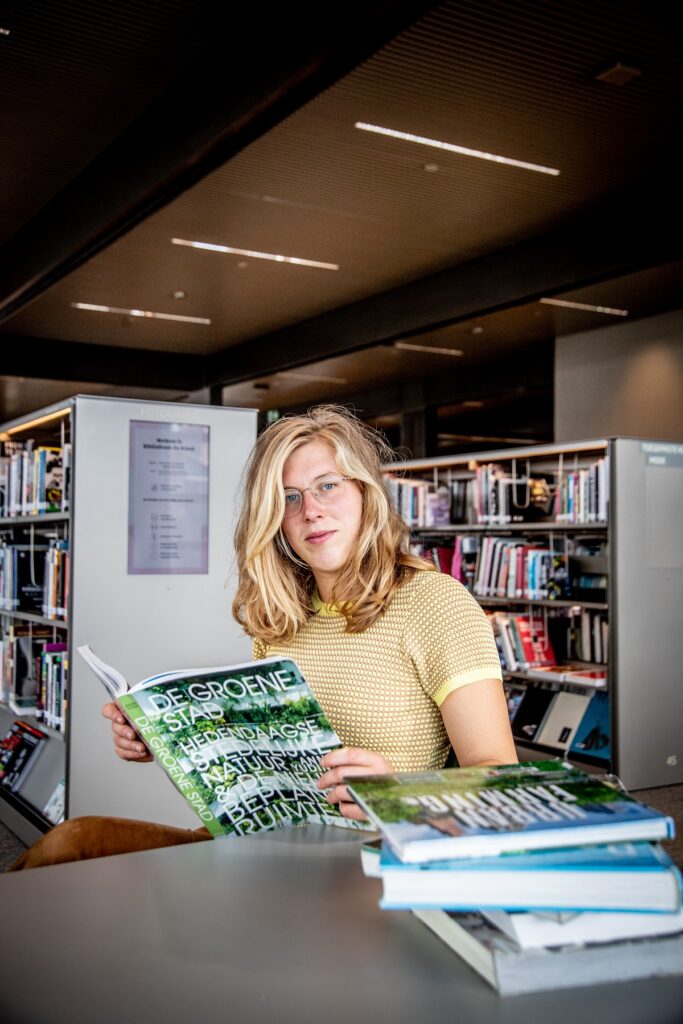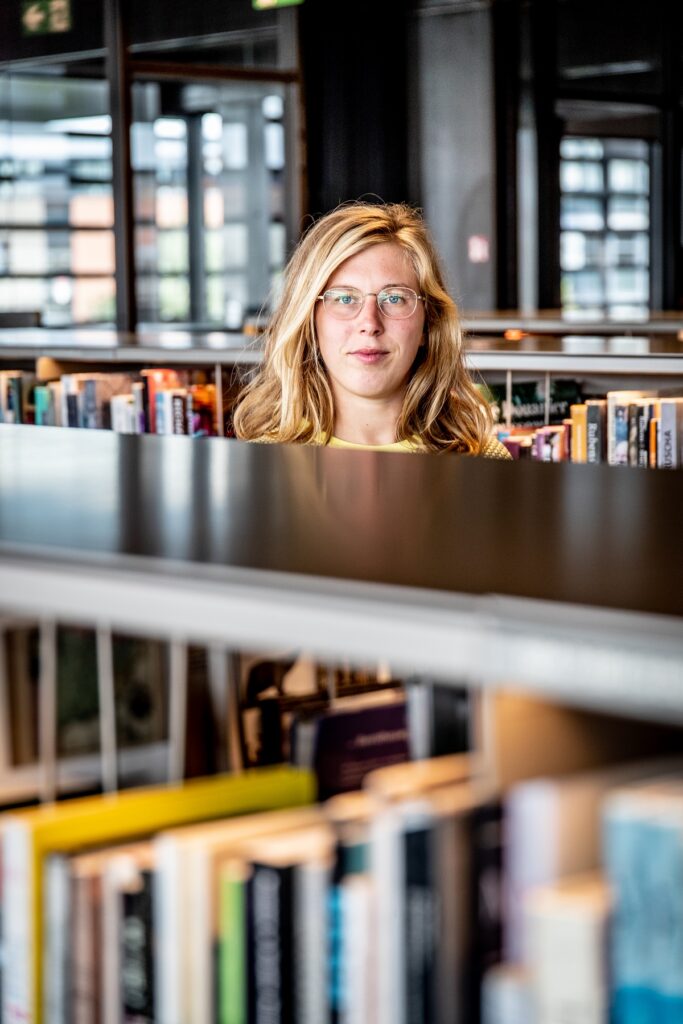Sabien as a student
Roof Food is going through a change. After the roof dinners and the catering, the company is gradually evolving into a consultancy for organisations and entrepreneurs who are interested in their own roof vegetable gardens. This new positioning requires even more knowledge and expertise from Sabien about all facets of urban agriculture. She acquires this from books, conversations and examples from home and abroad.
A Jack-of-all-trades
 “Roof Food is not a pure roof vegetable garden landscaper,” says Sabien. “Roof Food wants to profile itself as a specialist in roof vegetable gardens, both in design and construction, and also in commercial exploitation. We want to inspire entrepreneurs to start their own projects and help organisations such as property owners or project developers with their own business cases for their roofs. This means that I must be a Jack-of-all-trades.”
“Roof Food is not a pure roof vegetable garden landscaper,” says Sabien. “Roof Food wants to profile itself as a specialist in roof vegetable gardens, both in design and construction, and also in commercial exploitation. We want to inspire entrepreneurs to start their own projects and help organisations such as property owners or project developers with their own business cases for their roofs. This means that I must be a Jack-of-all-trades.”
Every potential new project starts with a technical feasibility study and Sabien adds, “During the first visit, we check whether the roof is suitable to carry a vegetable garden. If that is not the case, the story ends right there and then. For such a study, we work together with a structural stability consultant. However, in order to understand the subject matter and to be able to ask the right questions, I have to focus on that aspect.
This involves very technical matters such as roof construction, roof sealing, drainage, fire safety and so on. I get this knowledge from conversations with technicians and construction professionals or from books and reports of the Scientific and Technical Construction Centre (WTCB). Fortunately, it doesn’t feel like a task, as I really enjoy exploring new topics.”
Consultancy from start to finish
The consultancy part of Roof Food encompasses much more than just technical advice and the design of roof vegetable gardens. In order to achieve Roof Food’s mission (the greening and cooling of the city and the promotion of short-chain and biodiversity), Sabien sees it as being something much bigger. She wants to support building promoters, retailers and governments etc. with their urban agriculture projects from start to finish. Each project starts with a workshop on urban agriculture and real estate. In half a day, Sabien looks at the possible models together with the client and any other parties involved and looks at which model best fits the case, and also at any technical implications there might be.
This gives her a better insight into the scope and vision of the project. She then gives advice on all facets of the business case, i.e., the concept, the plan, the investments, the economic feasibility, the infrastructure, the garden design, and the construction and realisation. “Urban agriculture needs a more commercial approach and my favourite part of the job is to join in with the thinking process about the concept and then looking at the business opportunities.

Green roofs as a revenue model
Sabien relies on her experiences with Roof Food for this business-related advice and draws inspiration from other national and international initiatives. Together with Jonathan, she regularly attends lectures and festivals on urban agriculture or similar projects. Sabien knows that, across the board, the Netherlands is much further ahead in terms of urban agriculture and green roofs than we are. For example, the Netherlands has the non-profit organisation Dakdorpen (Roof Villages), which wants to build small and sustainable houses on the unused flat roofs of Rotterdam. Using the rental income, the roofs can each be fitted with a green roof. In this way, expensive green roofs can become a revenue model.
Sabien’s greatest example, however, is Brooklyn Grange in New York. This company operates the world’s largest roof farms on three roofs in New York and grows more than 45,000 kilograms of organic produce every year. In addition to growing and distributing fresh local vegetables and herbs, Brooklyn Grange also organises events, training courses, as well as designing, installing and maintaining green roofs for customers. Sabien adds, “I would very much like to visit their farms and talk to the founders. Their philosophy is the same as that of Roof Food, in that urban agriculture is a viable industry which only benefits the many different stakeholders”.
This story was created with the support of Circular Flanders, the Flemish policy-making organisation for a circular economy.


Leave a reply